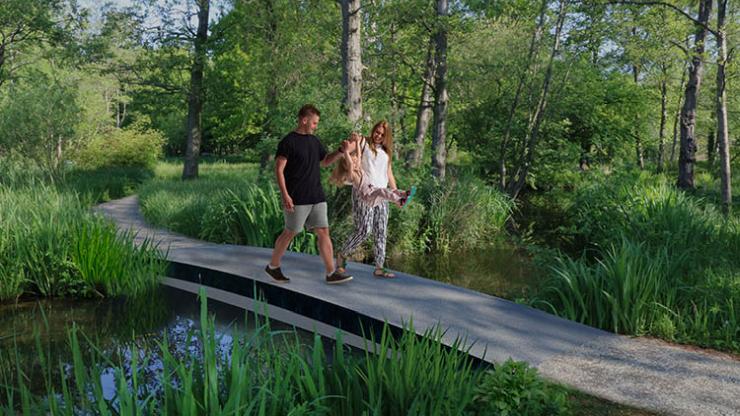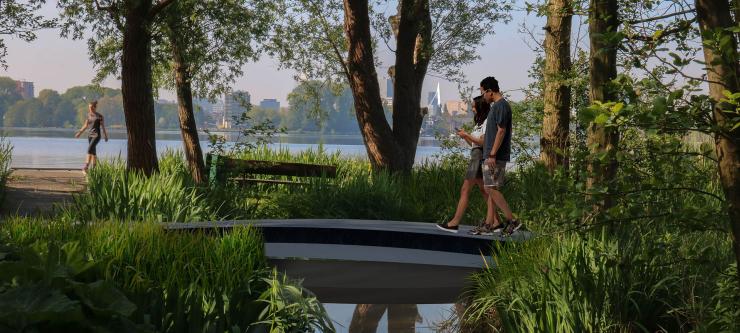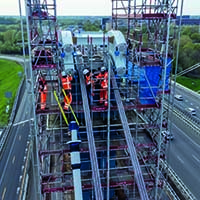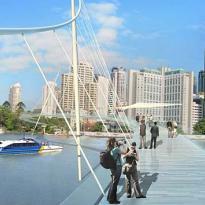Royal HaskoningDHV, DSM and the City of Rotterdam are collaborating in the design and construction of the new composite footbridge. The bridge has been designed to be ‘circular’ in its materials use, being made from a plastic that can be recycled.
Rotterdam has already been installing other FRP footbridges; the one planned for Kralingse Bos Park is claimed to be the first in the world to be made using 3D printing.
Royal HaskoningDHV business development manager Maurice Kardas said: “We announced the prototype of this circular composite bridge in 2019 and with the vision and support of our partners DSM and the City of Rotterdam we can now take this one step further.”

The aim is for the footbridge to be installed and in use by the end of 2020.
“Rotterdam and the Netherlands are ahead of the curve in innovation in infrastructure, particularly in the areas of sustainability and circularity,” said Kardas. “By introducing circular composites into their bridge infrastructure, Rotterdam proves once again to be a city ahead of the game. This is a step change which signifies a collective effort to bring innovation from idea to realisation and ushers in a new era of sustainable design and bridge functionality.”
City of Rotterdam asset manager Mozafar Said said that the city of Rotterdam is proud to be a leader in the use of composite bridges. “Together with Royal HaskoningDHV and DSM, we are continuing to push the frontiers of sustainability for bridges, using thermoplastics which will enable greater circularity. The 3D-printed FRP footbridge as a circular composite aligns with our city’s ambitious sustainability targets to reduce carbon footprint and promote liveability and we are proud to be the first city to test, print and install it.
“We see the use of composite bridges as a smart solution to replacing our older constructions. With more than 1,000 bridges in Rotterdam, we are constantly looking to push the boundaries to develop the next generation of bridges which will be more sustainable and circular with lower maintenance and lifecycle costs.”

The footbridge will be made from a fibre-reinforced thermoplastic called Arnite. DSM’s senior application development specialist for additive manufacturing Patrick Duis said: “The printed circular composite bridge enables the transition to a more sustainable and circular type of bridges with minimal wear and tear. Now that we have the new circular composite of recyclable source material along with the required performance properties available to us, we can start taking the environment-friendly design of the infrastructure to the next level.”




